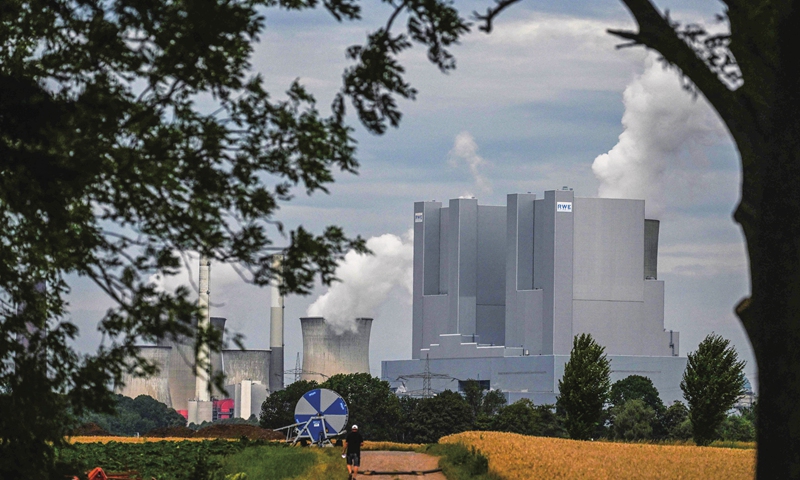Gas crunch likely to precipitate restructuring of global industrial chain: experts
A deepening energy crisis in Europe could put many economies on ice in the coming months, which may prompt a possible industrial restructuring, Chinese analysts said on Tuesday.
European natural gas and electricity prices soared on Monday after Russia on Friday announced plans to shut off natural gas supplies to Europe for three days, adding to concerns over a plunge in gas availability.
Benchmark gas prices settled at a record high, while German power bills surged above 700 euros ($696) per megawatt-hour for the first time, Bloomberg reported.
These developments come after Russia said it will stop its key Nord Stream gas pipeline for three days of equipment repairs on August 31, sparking concerns that it won’t return to service after the work.
The Nord Stream pipeline was already running at 20 percent of capacity, Reuters reported, stoking fears that Russia could halt gas supplies completely during the winter heating season and lead to an intensified energy crisis in Europe.
“There is a good chance that Russia might cut off supplies to Europe as a result of the Russia-Ukraine conflict, which could further exacerbate Europe’s energy crisis,” Lin Boqiang, director of the China Center for Energy Economics Research at Xiamen University, told the Global Times on Tuesday.
Although some European countries are rushing to fill storage sites and diversify their sources of energy, such as by importing liquefied natural gas (LNG) from the US, such moves won’t ease the crisis in the near future, Lin said.
“If the EU wants to import lots of LNG from the US, it needs the corresponding infrastructure, which cannot be achieved shortly,” Lin said.
A major cause of the European energy crisis is the sweeping economic sanctions launched by the US and its allies against Russia, experts said.
While the US is self-sufficient in energy, it has dragged Europe into a new cold war. Europe is being forced to cut itself off from its main energy supplier and it is now suffering from soaring energy prices, Chen Jia, an independent research fellow on international strategy, told the Global Times on Tuesday.
Europe has lost about half of its zinc and aluminum smelting capacity within the past year, and a further surge in power prices could knock more plants offline during the coming winter, Bloomberg reported in July.
It is feared that the situation will put European energy-intensive industries under pressure, affect the commitment of Europe to energy conservation and greenhouse gas emission reduction, and further aggravate divisions in European society, Zhou Rong, a senior researcher at the Chongyang Institute for Financial Studies of Renmin University of China, told the Global Times on Tuesday.
Europe’s aluminum smelters have cut output significantly and imports have surged since producers began cutting their output, raising European consumers’ carbon footprint by as much as 12 million tons per year, according to Bloomberg.
As it is difficult to reverse the energy crisis in the EU, which is expected to deepen in the coming winter, some EU enterprises are considering a shift in some production capacity, and China is an ideal destination, Chen said.
“China has the advantage of owning a complete global industry chain. If the top segment of the EU’s industry chain decides to relocate to China, it will have China’s full advantages of technology, manufacturing capacity and market as needed,” Chen said.
Amid the conflict between Russia and Ukraine, German companies have accelerated the pace of investment and factory establishment in China.
In July, German chemical giant BASF gave final approval for the construction of the Zhanjiang Verbund site, according to an announcement on its official website. BASF will invest up to 10 billion euros by 2030 to build the new Verbund site, which will be BASF’s third-largest Verbund site worldwide after Ludwigshafen, Germany, and Antwerp, Belgium, the announcement said.
(Global Times)




